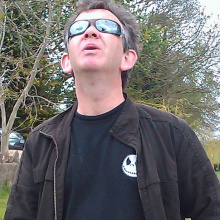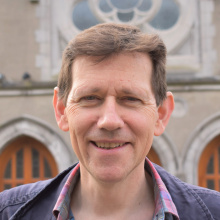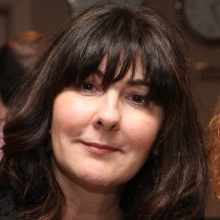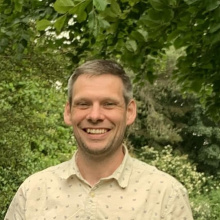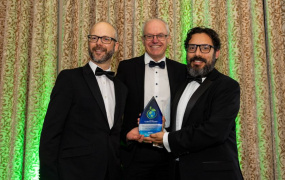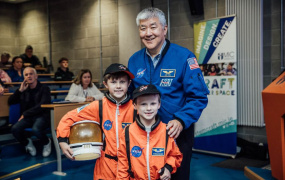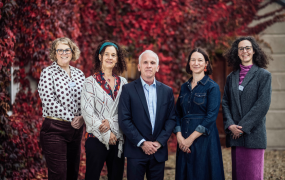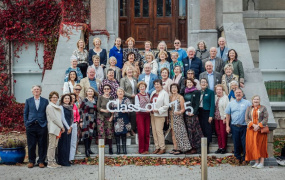Media & Communication Studies
About
Welcome to the Department of Media & Communication Studies. It has never been more important to have a deep and critical understanding of the media that influence every aspect of contemporary life. Our Department offers modules at undergraduate and postgraduate levels that foster such understanding, develop individual skills and support original research.
We offer an undergraduate programme that is roughly 40% practical and 60% theory driven, and covers a wide range of contemporary topics. Such a broad grounding contributes to high graduate employability in diverse media and creative fields, including social media, creative production, television, radio, film production, journalism, marketing, advertising, scriptwriting and all jobs where good communication skills are essential.
As a component of a Liberal Arts honours degree programme, the study of media complements all other subject choices, contributing to a rounded third level education. Our graduates find that the aptitudes and skills they have acquired within the Media and Communication Studies programme are transferable to numerous career pathways.
Lecturers are internationally acclaimed researchers with industry experience. As academics with considerable experience in teaching and research, each highly active in our individual specialist fields, we welcome queries from students who wish to undertake PhD and other research projects.
The Department offers a taught postgraduate programme, MA in Media Studies (MAMS). Students can take MAMS on a full time basis in one year or as part-time students over two years.
This programme has been running since 2007 and graduates work in all areas of the industry.
Many graduates of MAMS proceed to undertake PhD studies. If you are interested in doing so, please visit our staff page here and, by clicking on individual staff profiles, you will see the breath of research interests. Please get in touch directly with the Head of Department, Dr Rosemary Day, email Rosemary.Day@mic.ul.ie to explore your ideas further.
MIC is fortunate to have a fully operational and licenced FM radio station on campus, Wired FM. All students can gain valuable broadcasting experience (as well as a FETAC qualification) by working with the station as a volunteer or even as a Year 3 work placement. The opportunity to train as a radio presenter alongside the formal degree programme is an enormous asset to students considering a career in media. Apart from those excellent reasons to get involved, it’s fun and a great way to meet people and make lifelong friends.
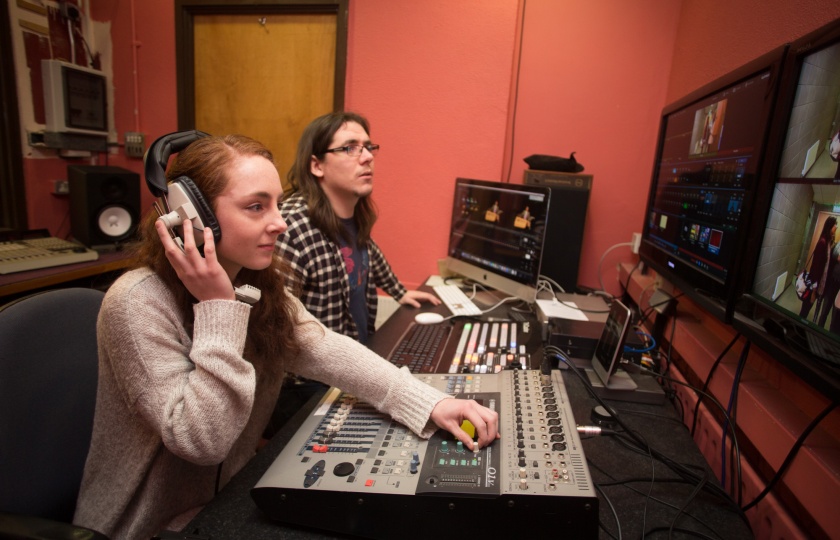
Subject Overview
Undergraduate
At undergraduate level, Media and Communication Studies can be taken as one subject in the joint honours BA in Liberal Arts. In first year, students take two introductory modules, along with modules from three other subjects.
Students who choose Media and Communication Studies as one of their two major subjects in second year progress to take a variety of practical, production and theory-based modules. This works out as roughly 40% practical and 60% theory-based studies. We find that this mix equips our graduates well for the workplace, for further study and for the challenges that quickly changing work environments present.
Modules vary slightly each year. See below for a current list of modules in the Bachelor of Arts programme in descending order from First Year onwards:
The module begins with a historical perspective on media, looking at the emergence of national institutions, competition with commercial companies and the challenges of alternative broadcasters. The development and use of broadcast media in Ireland is a core resource in this investigation. It proceeds to examine regulatory regimes that shape the contemporary media landscape. The emergence of international media institutions are explored, along with their consequences in terms of globalisation, hegemony and ideology. The programme continues thematically to cover such issues as propaganda, democracy and censorship.
The module introduces qualitative and quantitative research techniques through practical assignments on student consumption practices. Contemporary case studies are used to illustrate and explain critical theories. These include reality TV game shows, pornography, social media and disinformation.
The creation, interpretation and negotiation of meaning in the mass media and new social media are explored. Critical theories of media and the fundamentals of communication theory are introduced. Media texts are interrogated in order to understand how meaning is produced by producers and received and negotiated by audiences. The role texts play in informing worldviews and individual actions are explored. The relationship between producer, text and audience is deliberated. Theories of Semiotics (Peirce, Saussure) and the Rhetoric of the Image (Barthes) provide the frameworks for an exploration of advertising. The politics of representation and the worlds of storytelling in photojournalism and film are addressed. The challenges of the changing nature of the media landscape and of new knowledge environments are considered to position students as empowered critical users of social media.
This module will introduce students to the pre-production and production stages of programme-making in different media.
To introduce students to the aesthetic and narrative codes of cinema and consider these codes in the wider context of the film industry and the relation between cinema and economics in an international form.
To provide students with a critical understanding of the media from a sociological point of view. To introduce students to key aspects of the debate amongst social scientists about the workings and influence of the media.
To examine the current debates surrounding the process of communication and the exchange of messages. To permit the student to explore the potentialities of the print, radio and television media and to master the skills and disciplines necessary for effective preparation of material for presentation in the context of these media.
Media students may choose to undertake a work placement in the area and/or spend time studying abroad.
A practical course in script-writing. To give students an understanding of the process of communication through drama and develop their skills in writing for film, television and radio. Students will develop their skills through a series of exercises and workshops.
To provide an integrated study of the diverse relationships between media, culture and sociopolitical structures by situating the media in their broad historical and social contexts, and subjecting them to a critical examination in these contextual frames of reference.
To make the student aware of the full potential of audio and video resources as communication and instructional tools; to carry out a number of controlled exercises designed to increase the student’s knowledge of audio and video production equipment, its scope and its limitations, and to enable the student to:
- Identify the characteristics and advantages of a systematic approach to audio and video production;
- Operate audio and video equipment appropriate to its intended application;
- Set up and operate lighting equipment;
- Select and prepare an appropriate method of presentation for a given subject or topic; and
- Recognise the importance and characteristics of programme format and presentation style.
Media and cultural artefacts made specifically for children constitute a significant proportion of output from the media and cultural industries, and are prime exemplars of the industrialisation and globalisation of media and popular cultural forms. They have been the subject of extensive research in Media and Communication Studies, focusing on questions of appropriateness, educational value and the politics of representation in their handling of various social and cultural themes. Another strand of research has focused on how media, both as textual content and an increasingly varied range of technologies, are used by children to engage socially with each other, their families and the outside world. Such research includes both the uses of media aimed specifically at children and media for adult or more general audiences that are nonetheless available to children. It includes both ‘old’ and ‘new’ media, and older media forms available via new media technologies – streaming; social media; phone apps etc.
This module provides students with the opportunity to study this expanding and fascinating field of research. It will enable learning outcomes specific to the study of children’s media and more broadly it will develop students’ knowledge of major theories and concepts in Media and Communication Studies. In particular it critically addresses how childhood and socio-cultural themes pertaining to children are conceptualised within children’s media. It examines key approaches to the production, circulation and consumption of children’s media, utilising approaches drawn from cultural studies and sociology. It critically assesses the politics of representation in popular media texts for children, including film, television and comics. Research on how children engage cognitively and creatively with media content and media technologies is also reviewed.
The module reviews, compares and evaluates a range of critical and historical perspectives on the specificity and social significance of television as a media, technological and cultural form.
It examines:
- Television’s globally varied economic underpinnings, legislative constraints and forms of organisation; its parasitic, symbiotic and transformative relationships with such existing cultural forms as film, literature, theatre and sport.
- Its development and transformation of new cultural forms specific to itself as a medium, in the shape of whole genres (such as ‘reality TV’) and individual landmark contributions to contemporary popular culture.
Students explore:
How changing technologies and modes of delivery have affected the relationships between producers, distributors, legislative controllers and audiences and how the impact of television on social and cultural structures and relations in the 20th and 21st centuries can be assessed.
The module focuses on selected critical perspectives and debates regarding the cultural politics of representation of gender, race, class and national identity in these genres, and how forms of representation relate to broader social and political change within and across nation states.
Students consider the impact of ‘new media’ such as internet/ smart TV accessible platforms like Netflix, Disney+ etc., together with YouTube and social media on how television is consumed, shared and interpreted.
Students undertake a supervised individual research project.
Postgraduate
We welcome proposals for both MA by research and PhD study programmes from graduates of MIC and of other institutions in Ireland or internationally. Potential applicants should consider the research profiles of individual staff members and contact them directly to discuss the possibility of thesis supervision. General enquiries should be made to the Head of Department by email to Rosemary.Day@mic.ul.ie.
MA in Media Studies (MAMS)
Our Master of Arts in Media Studies (MAMS) programme is open to students from a variety of backgrounds, as well as those with previous experience of the subject. However, an ability to work independently and the possession of an open, curious mind are important requisites at this level of study.
Our master’s degree is jointly presented by Mary Immaculate College and the University of Limerick. The programme is delivered over three semesters in one year with lectures generally taking place in daytime on both campuses*.
The first two semesters are comprised of taught lecture modules, whilst the focus of the final, summer semester is upon individual research and dissertation preparation. Students’ research interests are matched to those of department staff, who then supervise the project.
For more information or if you would like to apply for the MA in Media Studies, click here.
*Some flexibilty with regards to the scheduling of classes may be possible to facilitate students who are working full time, so please let us know your needs when you apply.
Though the precise range of taught modules available each year varies, recent programmes have included the following options:
This module explores key conceptual issues and perspectives in contemporary media theory. Using the 'circuit of culture' as a framing device the module examines aspects of the political economy of media and culture, perspectives on media production and the lived experience of work in the media and cultural industries, media form and aesthetics, the cultural politics of representation in media and popular culture, and approaches to the study of media audiences and cultural consumption.
Radio has been neglected by academic researchers and theorists worldwide but this is changing as the rise of podcasting has led to renewed interest in telling stories through sound. The skills required for successful podcasting and the lessons learned in one hundred years of experience in making compelling audio form the bulk of the learning in this module. The Irish experience of radio provides most of the examples offered and the three sectors of Irish radio are described and analysed. The module focuses on sound, on the role of speech and of music in radio’s output, on programming formats and genres, on the production and listening processes, on radio’s unique relationship with its audiences and on the potential of radio as a tool for social and educational development.
Covering the main developments in Irish Film history, this module concentrates mainly on the period from 1978 to the present. It examines the key themes and tropes defining Irish Film today, focusing on how Irish Film has negotiated the tensions and interplays between global economic and cultural forces and tendencies and the need to represent and critically explore the ‘local’ in Irish culture and society. Key themes are the critical assessment of Irish film-makers’ attempts to plot a course between the historically divergent definitions of ‘film as art’ and ‘film as business’ and an examination of a number of new approaches to Irish film theory which have developed over the last decade.
Sound, whether in the form of music, noise pollution, or natural ambience, as commercial product, artistic or political gesture, has received increasing academic attention in the last decade. This module will introduce the key current debates about sound, drawing upon approaches developed in the fields of media studies, music, critical theory, musicology, ethnomusicology and psychoacoustics. Students will be encouraged to engage with a diversity of theoretical perspectives and methodological research techniques.
The module will employ detailed case studies from a diverse range of sound media, enabling a thorough exploration of their technological, aesthetic and social histories. Examples may include the exploration sound media technologies, the relationship between image and sound in film, experimental sound art and the soundscape movement. It will focus on the social construction of sonic environments, such as workplace 'muzak' and sporting events.
This module introduces students to the research methods which are specific to mass media research, as well as more general social science research methods. In addition to these specific foci, students will be required to familiarise themselves with a variety of academic papers in current mass media research journals which utilise the specific methods under investigation. By applying these methods themselves in a variety of research projects, students will acquire the ability to write up research correctly in a form appropriate to the method in use as well as becoming accomplished in the application of these methods as required. Students will be introduced to the process of preparing a research dissertation. Skills taught will include preparation, project planning and time management. Approaches to preparing a review of relevant literature will also be taught.
This module provides students with a critical understanding of professional screenwriting in industry contexts. It entails engagement with critical debates about the role of the screenwriter and the contemporary script. It introduces students to the art and craft of screenwriting; providing a knowledge of role of the writer in the contemporary screen industries and considers EDII issues in the script development and production process. The principles of drama from concept to page; the development of a theoretical understanding of form and structure; a familiarity with the visual and aural strategies required to communicate with screen audiences are all covered. Students develop a critical understanding of the differing requirements in writing for features, short film and television drama; they encounter a variety of approaches in the creation of a story world and in the creation of character and characterisation; design of dialogue; dramatization of scenes and the mastering professional formatting and style.
The academic study of popular music has become the focus of growing attention in media studies since it emerged in the 1970’s. As a mass-produced and broadcast medium, popular music has been the object of seminal theoretical works, particularly in relation to sub-cultures, gender, politics and consumption. This module will follow the development of popular music studies as a distinct discipline, explaining its engagement with contemporary theoretical currents and historical contexts. Several key areas such as identity formation and community will be explored in detail through case studies, and the module will lead towards current debates on fandom, interactive and creative music technologies.
This module evaluates current theoretical debates concerning the history, specificity and cultural meanings of television drama. It compares, contrasts and assesses a variety of critical approaches to the analysis of television drama’s production, social circulation, consumption and meanings. Syllabus topics include the following: the evolution of form and aesthetics in early television drama of the 1940s and 1950s; the divergent and changing industrial and social contexts of drama production; conceptualising the history of television drama; ‘doing television textual analysis’ - an overview of critical approaches; the impact of channel branding, DVD technologies and ‘television on demand’ on the changing experience of audience reception; US network TV versus subscription TV drama; the politics of gender, class and race in contemporary US television drama; television writers as ‘authors’; contemporary television audiences - the significance of fandom; memory, affect and identity in in television fandom - psychodynamic and related perspectives.
This module examines the implications of the growing interdependence of sport and media for the practices and meanings of sport as a range of popular cultural activities, and for the place of sport in various social relations of power. Drawing upon a variety of approaches from cultural studies, sociology, history and geography, it explores the historical emergence and influence of sport media and their impact on sport; the nationally and internationally varied political economy of sport and media; the discursive construction of and interplay between gender, race and nation in media representations of sport; and the roles of mediated sport in the expression and experience of individual and collective sport fandom. Case studies will include Irish and international examples and will range from film to print and broadcast media.
| News and News Media |
| Researching Irish Media Audiences |
| Sociolinguistics of Irish Media |
| Women and Ageing in Popular Culture |
| Community Media Engagement |
| The Development of Irish Media: A Theoretical Overview |
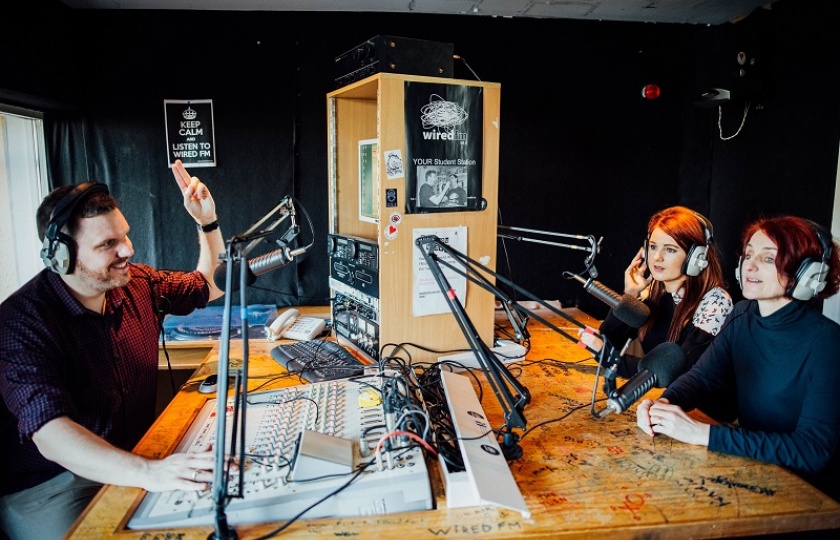
Staff
Media & Communications Studies Department Administration
Administration for the Department of Media & Communications Studies is handled by Jeannette Ferguson in the MIC Arts Office.
T: +353 61 204396
E: Jeanette.Ferguson@mic.ul.ie
Projects
MeDeMap
Mary Immaculate College is the Irish partner in a consortium of ten European universities that are investigating the role of the participation in the media in promoting and protecting democracy. This received funding of €3,000,000 from the EU HORIZON fund is for a number of specific research projects. Each project looks at a different aspect of the interconnections and interdependencies of the media and democracy. Taken together, they will feed into the production of an interactive map that will show the state of democracy and the media and how well one does or does not support the other across Europe. The project is called MeDeMap and will take three years to complete. You can find out more about it and about the work Dr Rosemary Day is conducting as part of the project by visiting www.medemap.eu.
Have your voice heard!
A call out for 20 Participants to express their interest in getting involved in the Irish Citizen Parliament on Media and Democracy is now open.
This initiative provides Irish people the opportunity to be part of this democratic research.
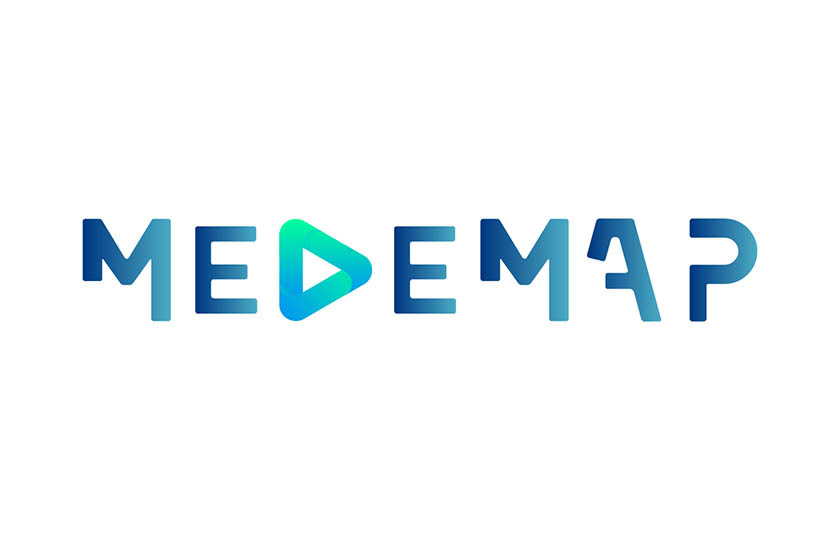
Audio Research Centre
The Media and Communications Department has a long established research centre which focuses on all things sonic: radio, music, soundscapes, sound art, film soundtracks, etc. The centre is home for research carried out by staff, PhD students and associates from other institutions.
Further details about the Audio Research Centre available here.
Limerick Soundscapes
Limerick Soundscapes is a community based recording project, led by researchers at MIC and UL. They work with a range of local communities to collect sounds from every location in the city and place these recordings on a virtual map of Limerick. The aim of the project is to continue collecting for many years, to create an archive of the gradually changing everyday environments that the cities citizens inhabit.
Research
Staff in the Department of Media and Communication Studies are active in a wide range of research fields. Here are a few of the publications, investigative projects, conferences and creative interventions we have been engaged with.
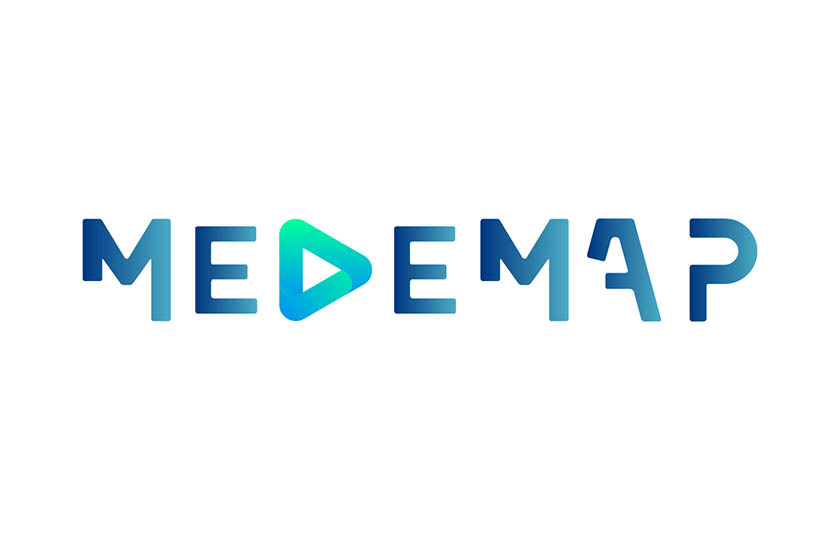
MeDeMap
Mary Immaculate College is the Irish partner in a consortium of ten European universities that are investigating the role of the participation in the media in promoting and protecting democracy. This received funding of €3,000,000 from the EU HORIZON fund is for a number of specific research projects. Each project looks at a different aspect of the interconnections and interdependencies of the media and democracy. Taken together, they will feed into the production of an interactive map that will show the state of democracy and the media and how well one does or does not support the other across Europe. The project is called MeDeMap and will take three years to complete. You can find out more about it and about the work Dr Rosemary Day is conducting as part of the project by visiting www.medemap.eu.
Have your voice heard!
A call out for 20 Participants to express their interest in getting involved in the Irish Citizen Parliament on Media and Democracy is now open.
This initiative provides Irish people the opportunity to be part of this democratic research.
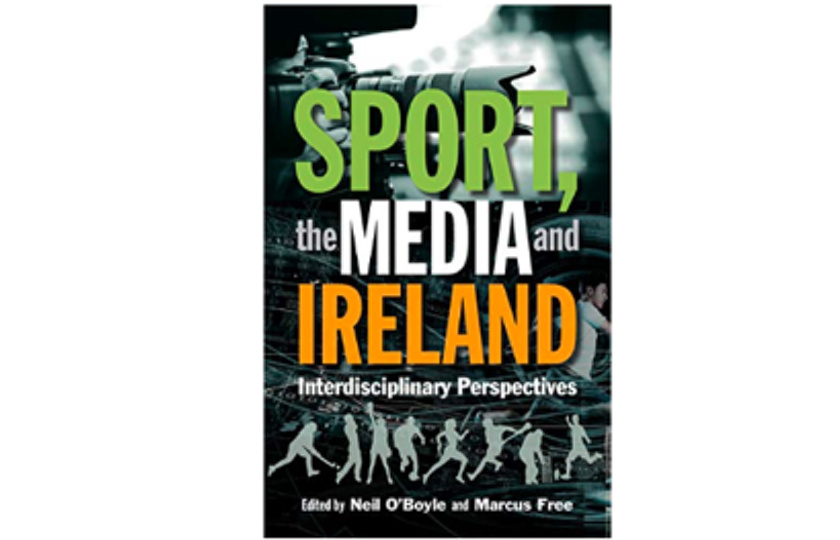
Sport occupies a central position in Irish social and cultural life, yet has been relatively marginal within the academy. Significant research has been undertaken by individual scholars, and various important books have been published recently – for example Paul Rouse’s Sport and Ireland; Mike Cronin et al.’s The GAA: A People’s History; and Conor Curran’s Irish Soccer Migrants. However, there are currently no collections or monographs devoted to the interrelationships between sport and media in an Irish context. This collection of essays redresses this gap. You can explore this important new publication, Sport, the Media and Ireland here.
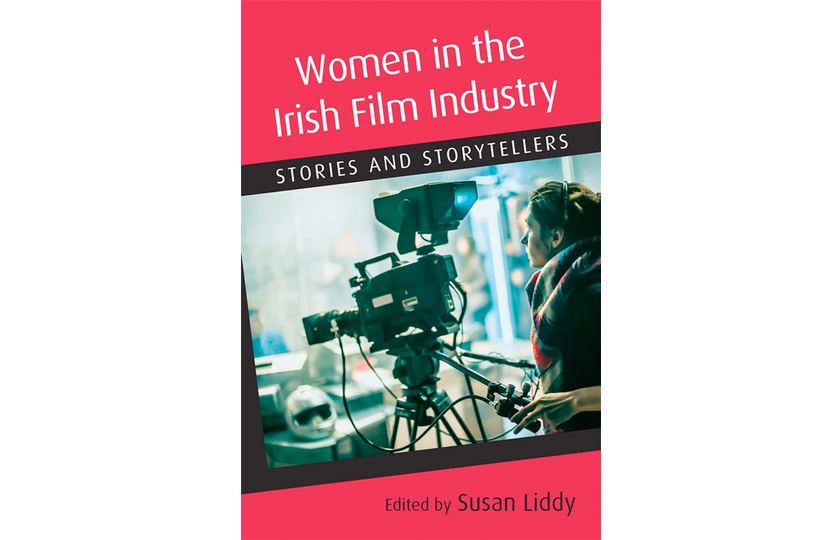
Women in Irish Film: Stories and storytellers is an interdisciplinary collection that critically explores the contribution of women to the Irish film industry as creators of culture - screenwriters, directors, producers, cinematographers, editors, animators, film festival programmers and educators. This book will explore the experiences and reflections of Irish women practitioners and, across a range of chapters, will situate them within a very specific historical, social and cultural context and further position them within a male-dominated film industry. Read a short RTE interview with Dr Liddy here.
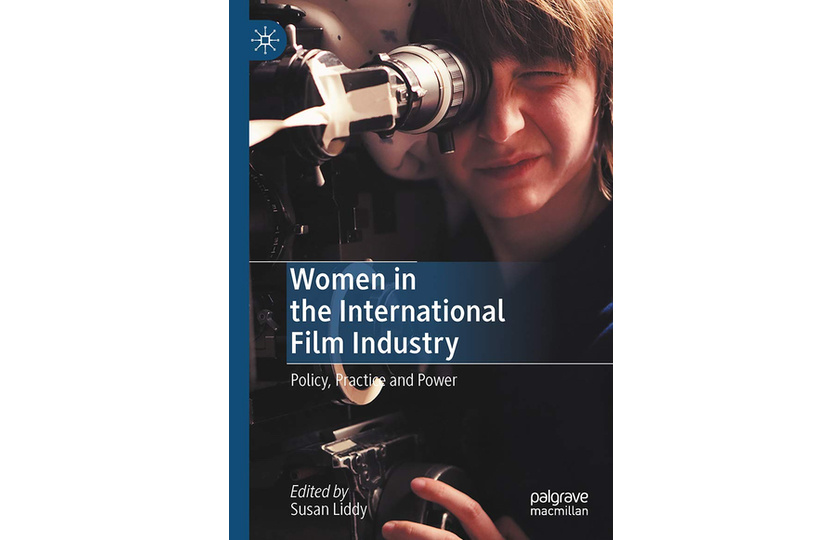
This book is about the struggle for gender equality in film industries across seventeen countries. Little is known about contemporary activism outside of Hollywood and this collection aims to fill this crucial gap in our knowledge. Contributors from countries as diverse as Iceland, New Zealand and Ireland evaluate their respective industries by establishing the scale of gender inequality with reference to structural inequalities, discrimination, unconscious bias and gendered power relations.
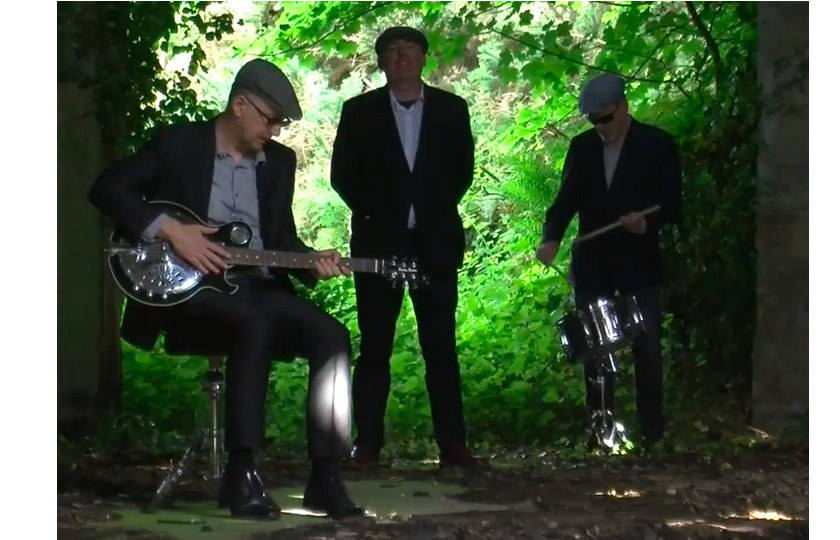
From the album 'Sinners and Lost Souls' by Sons of Southern Ulster. HT Records, Spring 2020 - Watch video here.
Community Radio in Ireland: Participation and Multi-flows of Communication
This book was published in 2009 and the theory developed on the participation of citizens in creating and sharing their own media has become relevant again as we look to engagement and participation in the media as ways of protecting and promoting democracy.
Based on the work of six community radio stations in Ireland it examines how participation is enabled and why this is important for community development. Researched before the advent of social media, it provides useful theoretical frameworks for investigating the extent, the depth and the impact of citizen media on digital platforms today.
Community Radio in Ireland: Participation and Multiflows of Communication
Bicycle Highway: Celebrating 10 years of Community Radio in Ireland
This book brings together the history of the community radio movement in Ireland with case studies examining the ways in which community radio in Ireland has worked to bring about community development and social benefit. It includes marries the fond memories of activists, founders and broadcasters with academic research and philosophical reflections.
- About
- Subject Overview
- Staff
- Projects
- Research



